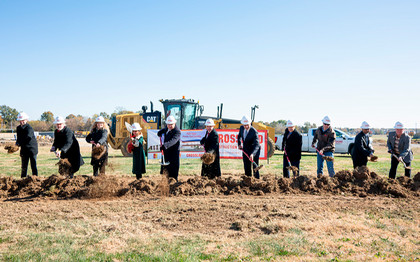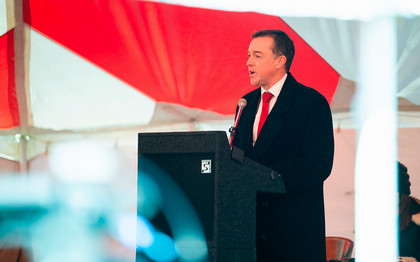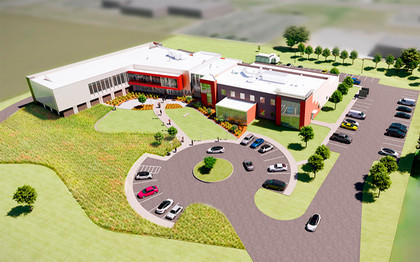Located on the east edge of campus next to the Tyler Research Center — home to the National Institute for Materials Advancement — the new facility will provide space and equipment for businesses and entrepreneurs to test new materials, refine manufacturing processes, and move ideas from concept to commercialization.
Planned for over 20,000 square feet, it will be built with $12 million in state, federal, and other funding.

President Thomas Newsom said the facility represents “continued momentum for our regional economy and our shared future.”
“The prove-out facility will be a place where ideas meet industry — where our university and local businesses come together to strengthen southeast Kansas through innovation, workforce development, and practical problem-solving,” Newsom said. “At Pittsburg State, we believe education and economic growth go hand in hand. This facility takes that mission to the next level.”
Pittsburg Area Chamber of Commerce President and Kansas Board of Regent Chair Blake Benson agreed the facility will have a significant positive impact on the economy. The groundbreaking marks another major step in a series of investments positioning Pittsburg and the surrounding region as a hub for innovation and applied research, he said.
Other projects underway include the EaglePicher expansion and the Kansas Bureau of Investigation Regional Crime Lab and Training Center — both being built within view of the prove-out facility at the east edge of campus.

Provost and Vice President Susan Bon said the new facility also represents “a platform for discovery, collaboration, and learning.”
“The new prove-out facility will give our faculty and students access to something every scientist and engineer dreams of: a space where ideas can move seamlessly from the lab bench to real-world testing,” Bon said. “Within its walls, we will see faculty and students working side-by-side with business and industry partners to prototype new materials, test manufacturing processes, and solve the kinds of challenges that shape industries and communities alike.”
Bon noted that the facility will serve students and faculty across multiple disciplines — including chemistry, physics, engineering technology, plastics, polymer science, and business — and will encourage new connections among Pitt State’s four colleges.
“These are the moments when classroom learning becomes a lived experience, and when curiosity becomes career readiness,” she said. “Together, we are creating something truly special — an ecosystem where teaching, research, and industry thrive side-by-side.”
Years of collaboration and visionary leadership from past presidents Steve Scott and Dan Shipp, along with congressional support, helped make the project possible.
U.S. Rep. Derek Schmidt credited former Kansas congressman Jacob LaTurner with helping to secure funding.
“This is an Important step in onshoring jobs back to the U.S. from locations overseas,” Schmidt said. “The teaching, research, and testing done here will be another step to give business and industry confidence to locate their companies in our region, and will help create good jobs for our kids so they can stay in Kansas.”
Completion is anticipated in 2026.
“Together, we’re not just turning dirt,” Newsom said. “We’re turning opportunity into reality.”

The university earned a Research Activity Designation from the Carnegie Foundation in 2025 for its investment in advancing science and discovery through research across the disciplines of engineering, life sciences, social sciences, and physical sciences.